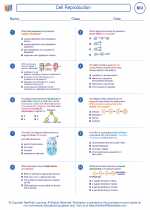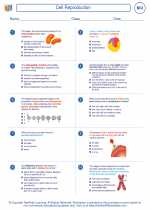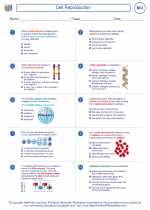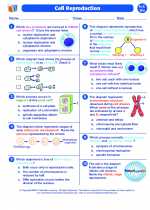Growth and Development
Growth and development are fundamental processes in biology that all living organisms undergo. These processes are essential for the survival and reproduction of organisms, and they involve complex and coordinated changes at the cellular, tissue, and organismal levels.
Growth
Growth refers to the increase in size, mass, and complexity of an organism over time. It involves the processes of cell division, cell enlargement, and cell differentiation. In multicellular organisms, growth occurs through the production of new cells and the expansion of existing cells. The regulation of growth is tightly controlled by genetic, hormonal, and environmental factors.
Development
Development refers to the series of changes and maturation that an organism undergoes over its lifetime, leading to the attainment of a mature and functional form. It encompasses processes such as differentiation, morphogenesis, and maturation of tissues and organs. Development is also influenced by genetic, hormonal, and environmental factors, and it is critical for the formation of specialized cell types and the establishment of body structures.
Study Guide
Key Concepts
- Cell Division: Understand the processes of mitosis and meiosis, and their roles in growth and development.
- Cell Differentiation: Explore how cells become specialized to perform specific functions in the body.
- Hormonal Regulation: Investigate the role of hormones in coordinating growth and development processes.
- Environmental Influences: Examine the impact of environmental factors such as nutrition, temperature, and light on growth and development.
- Morphogenesis: Learn about the processes involved in the shaping of tissues and organs during development.
- Genetic Control: Understand how genes regulate the timing and pattern of growth and development.
Study Tips
- Review the stages of cell division and the significance of each stage in growth and development.
- Explore case studies and examples of how genetic mutations can affect growth and development processes in organisms.
- Discuss the role of key hormones such as growth hormone, insulin, and sex hormones in coordinating growth and development.
- Investigate the effects of environmental factors on growth and development in both plants and animals.
- Compare and contrast the processes of embryonic and post-embryonic development in different organisms.
- Engage in hands-on activities such as observing the growth of plants under different environmental conditions or conducting experiments on cell differentiation in model organisms.
By mastering the concepts and principles of growth and development, you will gain a deeper understanding of the complex processes that shape living organisms and contribute to their survival and adaptation in diverse environments.
.◂Biology Worksheets and Study Guides High School. Cell Reproduction

 Worksheet/Answer key
Worksheet/Answer key
 Worksheet/Answer key
Worksheet/Answer key
 Worksheet/Answer key
Worksheet/Answer key
